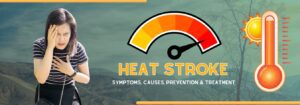Chest Pain Due to Gas
Experiencing chest pain alongside gas discomfort can be concerning, as it may indicate various underlying issues beyond simple indigestion. While passing gas frequently is normal, chest pain related to gas warrants medical attention. Understanding the distinction between heart-related and gas-induced chest pain is crucial before seeking professional help.
Symptoms of Gas-Related Chest Pain: Gas-related chest pain typically manifests as discomfort with a burning sensation in the chest area, sometimes extending to the abdomen. Alongside this pain, you may experience:
- Belching
- Indigestion
- Loss of appetite
- Bloating
- Excessive gas passing
- Pain radiating to the abdominal region
- Nausea
Differentiating Heart Pain from Gas Pain: Relief from pain after burping or passing gas might indicate a less serious issue like indigestion or heartburn. However, persistent pain accompanied by difficulty breathing or queasiness could signal a heart problem.
Heart Pain: Heart-related chest pain typically feels like pressure in the center or left side of the chest, lasting for 20 to 30 minutes. It may also present with:
- Heart palpitations
- Rapid heart rate
- Fainting or lightheadedness
- Nausea
- Pain spreading to arms, shoulders, jaw, or mouth
Gas-Related Chest Pain: This type of pain often arises from consuming certain foods or beverages and is characterized by the accumulation of excessive gas in the chest. Symptoms include:
- Abdominal pain
- Bloating
- Distention
- Burning sensation
- Stabbing chest pain
- Weight gain
Causes of Gas Pain in the Chest: Gas-related chest pain can result from dietary choices, medication use, or underlying medical conditions such as:
- Consumption of Carbonated Drinks: Soda and beer contain carbon dioxide gas, leading to bloating and gas accumulation in the abdomen, causing chest pain.
- High-Fiber Foods: Fiber-rich foods like beans and cruciferous vegetables may produce excess gas during digestion.
- Medications: Certain drugs or supplements, including antacids and opioids, can cause gas as a side effect.
- Swallowing Air: Eating too quickly or talking while eating can result in air swallowing, leading to chest discomfort.
- Heartburn/Acid Reflux: Stomach acid refluxing into the esophagus can cause a burning sensation in the chest, resembling gas pain.
- Irritable Bowel Syndrome (IBS): This inflammatory condition can cause bloating, gas, and abdominal cramps, sometimes leading to chest pain.
- Gallbladder Disease: Inflammation or stones in the gallbladder may cause upper abdominal discomfort that radiates to the chest.
- Food Poisoning: Ingesting contaminated food can lead to gas pain, along with symptoms like nausea, vomiting, and fever.
- Food Sensitivities: Intolerance to certain foods, such as lactose or gluten, can result in excess gas production and chest pain.
Home Remedies and Precautions: While awaiting medical evaluation, you can try these home remedies:
- Stay hydrated with warm water and herbal teas to aid digestion.
- Incorporate ginger into your diet to alleviate digestive issues.
- Avoid carbonated drinks, dairy, and gluten-containing foods.
- Engage in physical activity to help alleviate gas discomfort.
If chest pain persists or worsens, seek immediate medical attention to rule out any serious underlying conditions.






